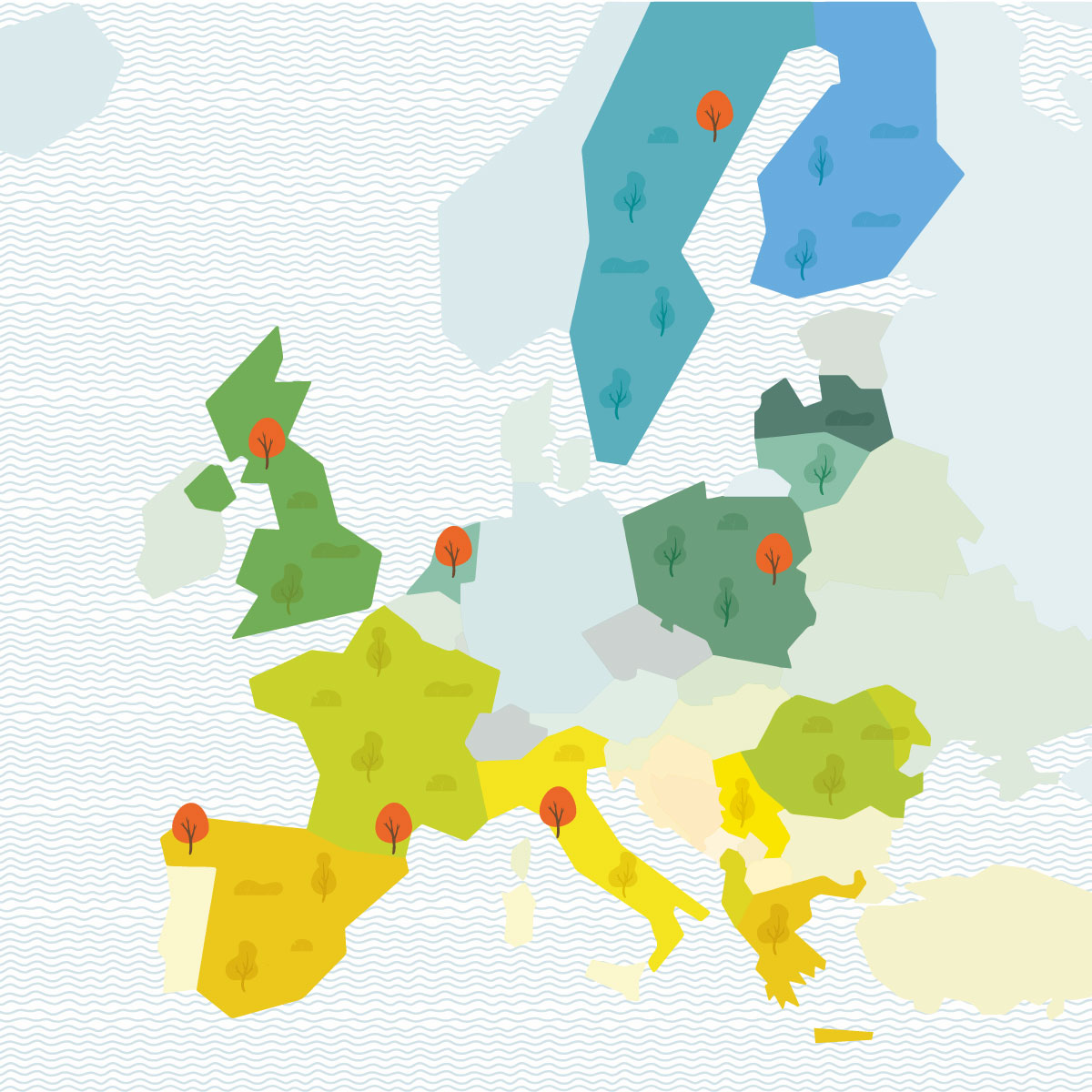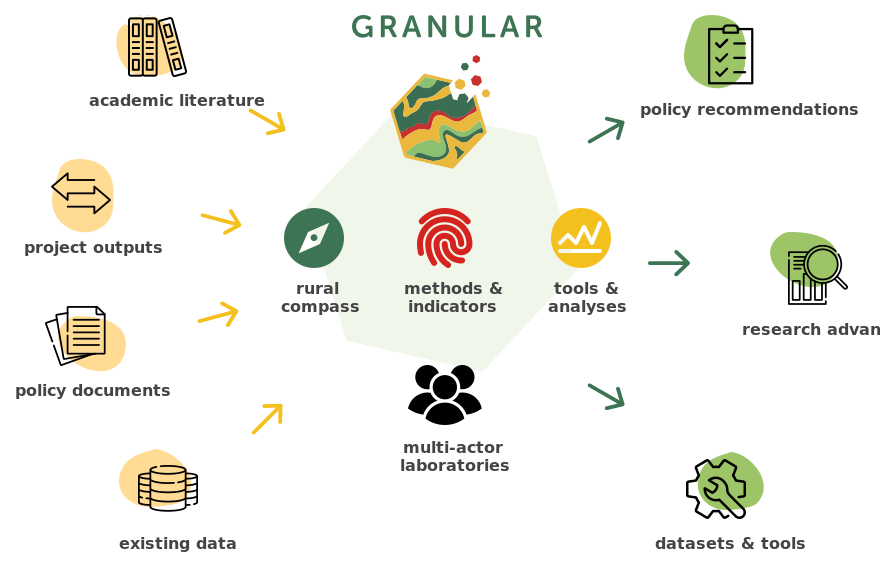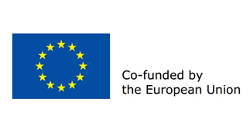
GRANULAR is a project that will last for four years, involving different disciplines and countries, with the aim of creating new datasets, tools, and methods to better understand rural areas. By doing this, we hope to gain new insights into the unique characteristics, dynamics, and drivers of change in rural areas. Using this newly generated and collected knowledge, we aim to help those involved in rural development to design place-based policies that are specifically tailored to the needs of each individual area. Ultimately, GRANULAR hopes to support rural actors in their efforts to promote sustainable territorial development.
Rural areas make up 80% of the European Union's surface, and one in every three citizens lives in a rural area. Rural areas are also incredibly diverse and vary based on their characteristics, spatial relationships, and the challenges and opportunities they face. As these areas prepare for their digital and green transition, there is a need to better understand their unique features and develop tools and data that can support evidence-based policymaking targeted to their needs (rural proofing). The GRANULAR project aims to identify, develop, and provide novel data and tools that can help characterize the characteristics, dynamics, and drivers of rural areas.
The project focuses on generating and assessing rural data to better understand said trends, threats, and opportunities for rural areas. We also develop indicators and engage with actors across different rural contexts to collect, analyze, validate, and assess data. Through this process, we contribute to the operationalization of rural-proofing policies and offer tools for decision-making, leading to just and inclusive transitions of rural areas.
7 Living Labs
To achieve our goals, we adopt a co-creation and multi-actor engagement approach. The project runs 7 Living Labs in different rural areas of Europe, including France, the Netherlands, Italy, Poland, Spain, Sweden, and the United Kingdom. These Living Labs bring together rural actors from science, policy, and civil society to co-design, test and validate GRANULAR's work.
Furthermore, halfway through the project, 9 Replication Labs will assess how to replicate the tools and methods of the project in other countries, including Albania, Finland, Greece, Italy, Latvia, Lithuania, Moldova, Romania, and Serbia. Our aim is to share knowledge, provide rural actors with decision-making tools, and support just, carbon-neutral, and inclusive transitions of rural areas across Europe.
The IIASA, Novel Data Ecosystems for Sustainability (NODES) research group is leading Work Package 3, which focuses on discovering and creating innovative and accessible data sources for rural areas. We will work alongside our partners to evaluate a variety of standard and non-traditional data sources, break down current data by demographic and geographic criteria, and supplement missing data through methods such as crowdsourcing, web scraping, and earth observation. In addition to overseeing administrative responsibilities related to WP3 collaboration, IIASA will also serve as the primary point of contact for communication with all partners, given that these tasks have direct impacts on all other work packages.
The project brings together 23 partners:
- International Center for Advanced Mediterranean Agronomic Studies, Montpellier (lead)
- Nordregio
- Wageningen University
- International Institute for Applied Systems Analysis
- University of Pisa
- Agricultural University of Athens
- European Association for Innovation on Local Development
- Czech University of Life Sciences
- French National Centre for Scientific Research – Université Paris Cité
- European Rural Development Network
- Thunen Institute of Rural Studies
- Ecorys
- University of Vigo
- Partnership for Rural Europe
- Region Vasterbotten
- Geemente Opsterland
- Distretto Rurale Della Val di Cecina
- Kuonnonvarakeskus
- Pays Pyrénées Méditerranée
- Politechnika Koszalinska
- University of Milan
- University of Southampton
- The James Hutton Institute




